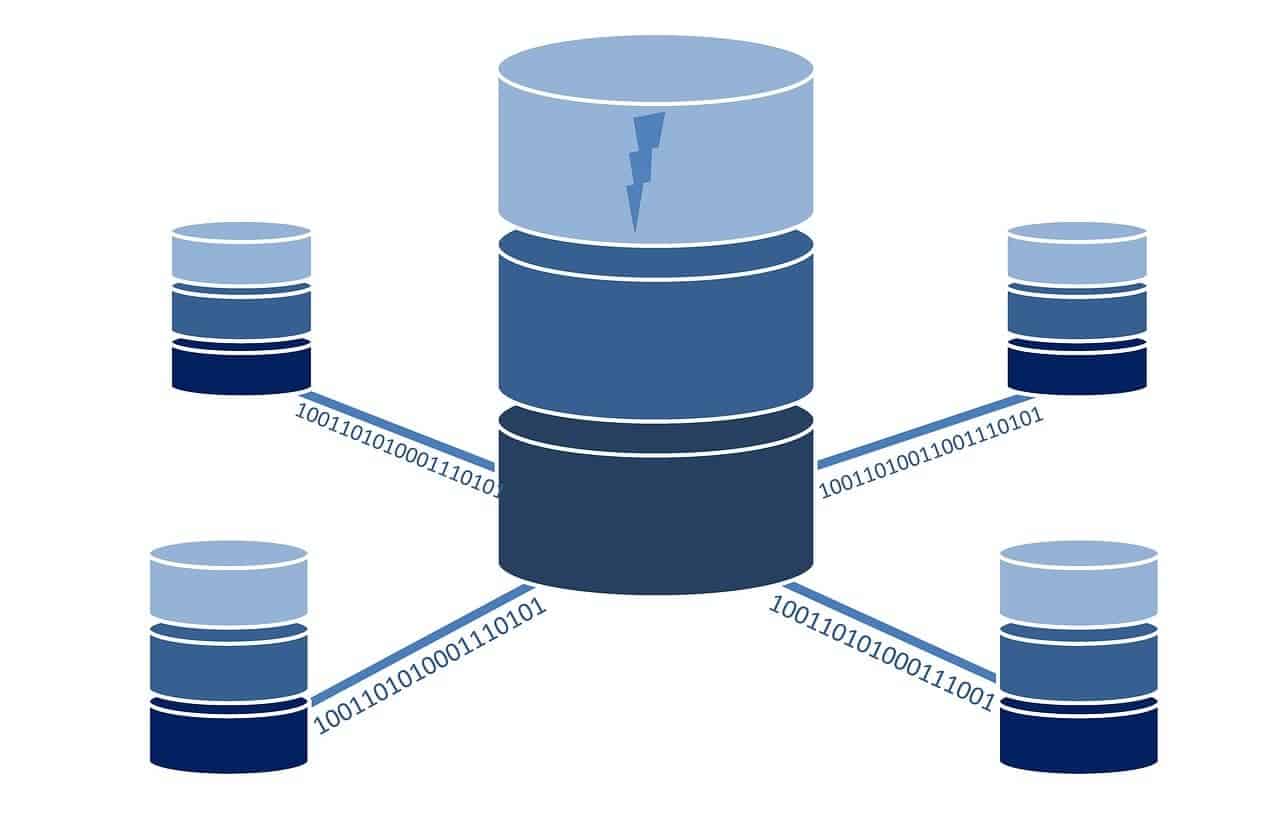The future of IT is rapidly changing, with emerging careers in high demand. Futurists and technology experts can identify upcoming trends that have shaped the industry for years. This article examines these shifts and how they will impact our society, particularly those seeking freedom through their chosen career path. By exploring new opportunities within this ever-evolving sector, individuals can find success while working toward meaningful goals.
From blockchain technologies to data science, there are many different paths to choose from when looking at potential jobs in IT. Each offers unique challenges and rewards and requires specialized skill sets to be acquired before entering such markets. With abundant resources available online, making informed decisions has become easier than ever before; however, it is crucial to understand each field’s nuances before committing time and energy to pursue them.
This article provides a comprehensive overview of the current state of IT and evaluates which sectors offer the most opportunity for growth in terms of sustainability and reward. It also outlines strategies for navigating these waters so readers can make informed choices about their futures without sacrificing their desired freedoms or passions.
Definition Of It Field:
The Information Technology (IT) field is an ever-evolving area of study and practice. It encompasses a variety of disciplines, including computer architecture, software engineering, hardware engineering, cyber security, digital forensics, programming languages, and more. As technology progresses and the demand for professionals in this space increases, so do the opportunities to pursue new career paths within IT.
To identify emerging careers within IT that are expected to be in high demand over the coming years, it is crucial to understand how technologies continue to shape our lives and businesses across all industries.
From driverless cars and intelligent robots that can complete complicated tasks with speed and accuracy to artificial intelligence systems that can make decisions faster than humans ever could before – these advances are just some of the ways that technology is transforming society as we know it today. With such rapid growth comes an increased need for skilled personnel capable of harnessing these innovative tools towards meaningful outcomes, thus making IT a lucrative industry for those willing to invest time into honing their skill set.
Automation And Robotics:
The proliferation of automation and robotics in everyday life has rapidly increased over recent years. Automation is becoming increasingly crucial for businesses to reduce costs and increase efficiency and accuracy. Robotics also plays a crucial role in improving industrial processes, providing enhanced safety, precision, and speed while reducing labor costs. As the demand for automated and robotic systems grows, so do emerging career opportunities.
One job that stands out is Robotic Process Automation (RPA) Analyst/Engineer. This job involves designing software solutions to automate various business processes using RPA tools like UiPath or Blue Prism. Another popular position is a Robotics Programmer, which requires developing programs to control robots’ movements, sensors, vision systems, etc. Additionally, some companies are looking for experts specialized in Artificial Intelligence (AI) & Machine Learning (ML), who can design algorithms with predictive capabilities and build AI-driven applications such as chatbots for customer service purposes.
These positions offer an exciting opportunity for those interested in advanced technologies related to automation and robotics; however, they require substantial technical knowledge combined with problem-solving skills. Also, professionals must be able to stay current with trends by learning new programming languages and technologies when needed – making it essential to remain open-minded about adopting new strategies quickly.
Augmented Reality And Virtual Reality:
The increasing adoption of augmented reality (AR) and virtual reality (VR) technologies is transforming how businesses interact with their customers. As these technologies become more widespread, they create exciting new opportunities for people to develop careers in this area. The demand for professionals specializing in AR/VR design and development is overgrowing, providing an opportunity to explore a wide range of possibilities within this field.
To capitalize on the potential presented by AR and VR, job seekers need to be well-versed in the fundamentals of coding, 3D modeling, animation, game design, and user experience. These skills will enable individuals to create compelling experiences that push the boundaries of innovation and imagination. Companies seek creative minds that can think outside the box when developing applications for both consumer and enterprise environments. With an ever-evolving landscape full of exciting possibilities, there’s plenty of work for those willing to take advantage of them.
From full-time positions as software engineers or designers to freelance gigs as consultants or content creators, professionals interested in pursuing a career related to AR or VR have plenty of potential paths ahead of them. It’s up to each individual to decide which path offers the best combination of challenge and reward – one that allows them to pursue their passions while helping others realize theirs too. No matter what direction you choose, the future looks bright regarding emerging careers in high-demand industries like augmented reality and virtual reality.
Cyber Security Specialists:
Cyber security is an increasingly important aspect of IT. As technology becomes more advanced, new threats must be dealt with promptly and securely. Cyber security specialists are well-versed in assessing risk and preventing cyber attacks on systems and networks. They can deploy the latest technologies, develop strategies for protecting data, identify vulnerabilities to malicious activity, analyze potential threats, and respond quickly when needed.
The demand for cyber security professionals is overgrowing as organizations look to protect their digital assets from external threats. With this need comes great opportunity; those who specialize in this field have the potential to achieve fulfilling careers with high salaries and job stability. Their roles are critical for any organization looking to remain protected from malicious actors, both internally and externally. In addition to technical skills, these professionals will also require soft skills such as problem-solving, communication, collaboration, negotiation, and decision-making.
Big Data Analysts:
The dawn of big data is here. No longer a distant goal, its potential to transform industries and business processes is already being realized. In the coming years, there will be an increasing demand for professionals with expertise in this field. Big Data Analysts collect, organize, analyze, and interpret large amounts of complex data sets using specialized software programs to help organizations make informed decisions.
Big Data Analysts must possess strong technical skills as well as analytical abilities. They must thoroughly understand database systems and analytics tools such as Apache Hadoop, Python, Java Scripts, and Machine Learning algorithms like Random Forest or Neural Networks. Furthermore, they need to be able to verbally and visually explain their findings through charts and reports that non-technical stakeholders can easily understand.
As technology continues to evolve at breakneck speed, so does the role of the modern Big Data Analyst. Their job involves staying abreast of new developments in their field while utilizing an ever-expanding set of technologies to bring meaning out of seemingly chaotic datasets. As more companies embrace digital transformation strategies powered by predictive insights drawn from these valuable sources of information, the position promises to remain relevant and essential in the future.
Software Developers:
Software Developers are an integral part of the IT industry. As businesses become increasingly reliant on technology, their need for Software Developers continues to grow. As such, it is projected that this career field will continue to experience high demand in the coming years.
Software Development involves creating, testing, and maintaining computer programs using Python, C#, and Java programming languages. It requires a combination of problem-solving skills and technical knowledge, along with creativity and troubleshooting abilities. In addition to developing software applications from scratch, Software Developers also update existing applications as needed or requested by clients or employers. They may work independently or as part of a team, depending on the project they are working on.
The future of Software Development looks bright, both in terms of job prospects and wages. With the right qualifications, individuals can find employment and earn competitive salaries within this dynamic profession. Companies across industries rely heavily on software solutions; therefore, there is a continuous need for skilled professionals who can design effective systems according to specific requirements. To keep up with customers’ changing needs and technological advancements, Software Developers must stay current with emerging trends while remaining focused on producing quality products quickly and efficiently so that businesses can remain successful.
Machine Learning Engineers:
The emergence of Machine Learning Engineers is a critical development in the IT industry. This advanced engineering field combines aspects of computer science, mathematics, and statistics to create highly sophisticated algorithms that they can use for predictive analytics. The Machine Learning Engineer is responsible for creating these algorithms and ensuring their accuracy, interpretability, and scalability. Their work involves:
- Researching new techniques for data analysis.
- Testing them on large datasets.
- Selecting appropriate models.
- Optimizing model performance.
- Deploying trained machine learning systems into production environments.
The demand for this type of engineer is multiplying as businesses increasingly turn to automated solutions such as artificial intelligence (AI) or robotics process automation (RPA). Companies have recognized the need for intelligent systems that can quickly identify data patterns and generate insights that help inform decisions faster than humans could alone. Having an experienced Machine Learning Engineer on board has become essential for staying competitive in today’s market. With this rising demand comes lucrative salaries; many companies now offer generous compensation packages with benefits tailored toward technical professionals who specialize in AI-related fields.
Cloud Computing Professionals:
The future of IT is a field that cloud computing professionals will dominate. Cloud computing has become an essential part of the digital landscape, and those with the skills to manage, configure, and maintain cloud servers are highly sought after. As businesses move away from traditional on-premise infrastructure solutions toward more agile deployment models in the cloud, there is an ever-increasing need for experienced personnel with expertise in this area.
These individuals must possess technical knowledge and business acumen to understand how best to deploy applications and services within a distributed environment. It entails managing hardware resources and developing strategies to ensure optimal performance. Additionally, these professionals must be able to develop creative solutions that meet customer needs while still being cost-effective. It requires them to stay abreast of new technologies so they can quickly adapt to their environments when needed.
Cloud computing brings freedom to organizations, allowing them to focus on their core competencies rather than worry about maintaining complex data centers or dealing with potential outages due to physical infrastructure issues. With greater access to powerful tools, companies can leverage their competitive edge through faster innovation cycles and improved scalability options. Those skilled in deploying cloud solutions can open up limitless possibilities for their customers while providing significant value-adds over time.
Artificial Intelligence Programmers:
The emergence of Artificial Intelligence (AI) has revolutionized the possibilities for modern technology. AI experts are in high demand as the need grows to develop algorithms that can solve complex problems, automate mundane tasks, and integrate data into meaningful insights. As a result, more and more organizations are actively seeking experienced professionals with advanced knowledge of AI programming languages such as Python, Java, and C++.
As an AI programmer, you will be responsible for building software applications using various coding techniques and developing machine learning models. Utilizing your data science, statistics, and mathematics expertise, you’ll create algorithms capable of recognizing patterns from large datasets to gain valuable insights into customer behavior or market trends. Additionally, you must have a strong understanding of natural language processing (NLP), computer vision (CV), and other cutting-edge technologies needed to deploy robust solutions. To succeed in this field, you must also possess excellent problem-solving skills and creativity when designing efficient algorithms.
Given the rate at which AI is advancing, these jobs offer great potential for growth over the next decade – both professionally and financially. With salaries reaching up to six figures depending on experience level, becoming an artificial intelligence programmer equips individuals with some of the most sought-after job opportunities today, affording them greater freedom through financial stability while contributing towards humanity’s progress through their work.
UX/UI Designers:
The UX/UI Design field has grown tremendously in recent years and shows no signs of slowing down. As companies strive to create products with intuitive user experiences, the need for highly trained professionals who understand how to design digital interfaces continues to increase. In this way, those interested in a career related to technology can majorly impact the future of IT.
UX/UI designers are responsible for creating visual designs that enable users to navigate complex systems efficiently. They must possess technical skills such as coding and design knowledge and interpersonal capabilities necessary for managing customer feedback and designing solutions based on their needs. Those entering this profession should be passionate about learning new technologies, understanding different cultures, and applying creative problem-solving techniques when needed.
Furthermore, they must be able to effectively communicate with stakeholders across multiple disciplines, including marketing teams or developers. The goal is always to produce seamless yet powerful user experiences that empower people with the freedom and flexibility they desire from modern technology.
Conclusion:
As technology continues to evolve, so do the careers in IT that are in high demand. The future of IT is filled with automation and robotics, augmented reality and virtual reality, cyber security specialists, prominent data analysts, machine learning engineers, cloud computing professionals, artificial intelligence programmers, and UX/UI designers. Automation and robotics will continue to revolutionize many industries as machines take over more complex tasks from humans.
Augmented and virtual reality possibilities are endless for entertainment applications and business use cases. Cybersecurity specialists will be needed to protect businesses against attacks on their systems and networks. Prominent data analysts must understand how they can apply current trends to future outcomes based on large datasets collected by businesses or organizations.
Machine learning engineers must develop algorithms that allow a computer system to learn from its experiences without being explicitly programmed. Cloud computing professionals will become increasingly important in helping companies move away from traditional software models toward these new technologies. Artificial intelligence programmers will create intelligent machines capable of taking on human-like tasks while making decisions autonomously.
Finally, UX/UI design professionals will help ensure users have an enjoyable experience when interacting with software programs developed using all these technological advances. Numerous career opportunities are available within this exciting field of IT, where innovation knows no bounds!


















